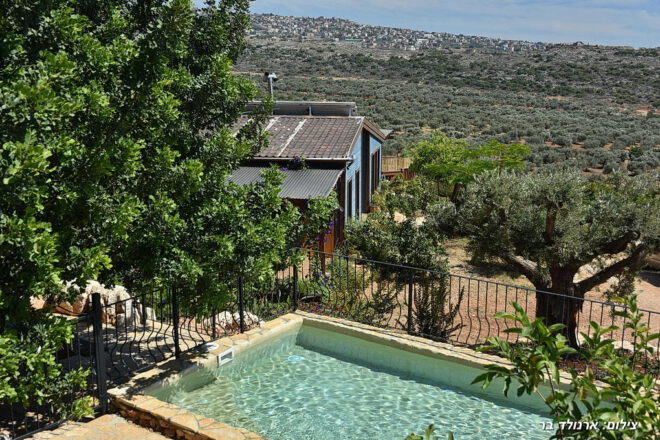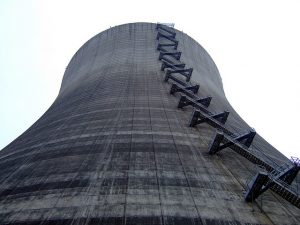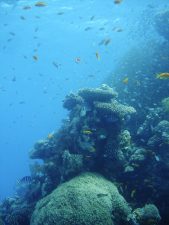We’ve already written about Israel’s eco tourism industry and even about new eco study abroad options in Israel for overseas college students who want to make their positive green mark here.
And for the tourists Israelis who want to explore their home in an environmentally friendly way, or bring green living to their everyday lives? There are lots of green towns in northern Israel, in the Galilee.
Kfar Kalil, in the western Galilee, is a town full of people trying to live simpler lives that are more in touch with nature. The approximately 50 families living in Kfar Kalil get all of their energy from solar power and practice exclusively organic agricultural practices.
Since the plots of land in Kalil were purchased privately, the houses are spaced relatively far away from each other in order to try to preserve the look of the landscape.
Klil, which might also be spelled Kalil in some places has a few eco tourism options. Here are my 3 favorites:
Bein Haruv Le Zayit:
This bed and breakfast is located in Kalil and features a swimming pool with a natural (as opposed to artificial) design, yurts, and a small store with homemade organic soaps.
Habayit Betzel Etsei Hazayit:
This collection of three small cabins – the orange house, the earth villa, and the sky villa – overlooks the Galilee mountains and an expansive landscape view.
Ohalim:
Ohalim which means “tents” is a venue for workshops and quiet events held in a natural setting. Its spacious plot faces an ocean view and contains walking paths, meditation areas, and an organic vegetable garden.
Update 2021: AirBnB has changed the way people find accommodation in Klil nowadays. Most nights are unusually pricy for the value – like renting a person’s 3 bedroom house – but stuffed with their stuff for US $350 a night. But with Israel being a tight market where cost of living is high, you will find people ponying up and paying that and even more for an “eco” experience closer to nature.
Also, Klil was way more fun for adventurers when the cafe Cafe Klil in the middle of the village functioned as a community outlet for families. It’s been closed since COVID as far as we know.
Read more about other green spots in the Galilee:
Israeli Eco-Conscious Town Nurit is in the Works in Gilboa
Green Prophet Visits Amirim, a Vegetarian Paradise in the Galilee
Guesthousing It In Israel: Get Your Eco-Farm On




I red an article about Kliel. But I also read Kalil, Klil etc. Wat is the exact location of this ecological settlement?
Thank you for the ‘road information’.
Shalom,
Ja’akov
http://en.wikipedia.org/wiki/Klil
Ben haruv v zayit does have solar panels, having disconnected from the neighborhood generator. Klil is “organic” because of benign neglect. An automobile is imperative, shops and work at least 15 minutes away. The trash gets hauled off and burned. Some households use ponding to treat their waste water, the majority rely on cesspools/tanks. Klil is more anarchic than ecological imo.
Klil is a wonderful place to visit. A few years ago, we stayed at the large cottage at Bein Haruv LeZayit – highly recommended!! Well stocked kitchen, interesting mosaic inlays in the floors, wrap-around porch with wonderful views…
Klil was off the grid when we were there, and I assume it still is, which means that the residents got by with no electricity, or generated it on site, either by noisy, polluting diesel generators or by alternative means.
The environmental disadvantage of a place that is off the grid, is that when there is a need for electricity – for example, guesthouses at night or manufacturing – they usually run generators, which pollute tremendously.
I don’t know whether there is a different system now for providing electricity at night (or even during the day), but if the power is provided by generators, you can decide to go without, and ask your hosts not to operate the generators for you.
again – HIGHLY recommended. There is at least one straw bale house in Klil, which is large and very attractive from a distance.